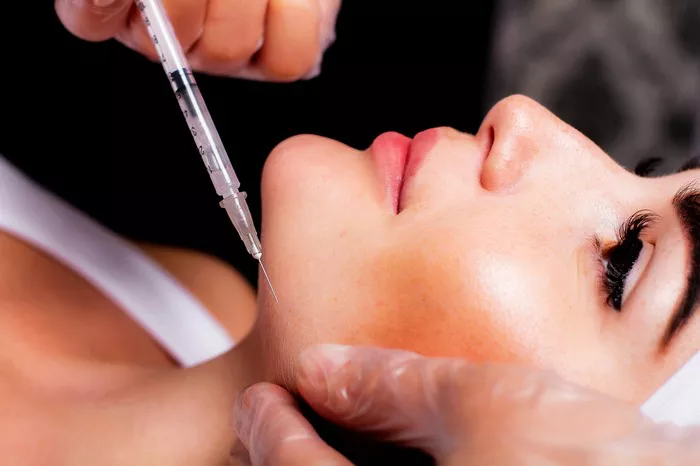Botox has gained recognition not only for its wrinkle-reducing effects but also for its ability to reshape and slim the jawline. If you’re considering Botox for jaw reduction, you may be curious about how long the results will last. In this article, we will explore the duration of Botox in the jaw area, the factors that influence its longevity, and the benefits of using Botox for jaw reduction.
Understanding Botox for Jaw Reduction
Botox, short for botulinum toxin, is a neurotoxin that temporarily relaxes muscles when injected in small amounts. When used in the jaw area, Botox can help reduce the size and prominence of the masseter muscles, which are responsible for chewing and clenching the jaw. By relaxing these muscles, Botox can create a slimming effect, resulting in a more contoured and aesthetically pleasing jawline.
Duration of Botox in the Jaw
The duration of Botox in the jaw area varies from person to person and can be influenced by several factors. On average, the effects of Botox for jaw reduction typically last between three to six months. However, it’s important to note that individual experiences may vary. Some individuals may experience shorter or longer-lasting results based on their unique physiology, metabolism, and the dosage of Botox administered.
Factors Affecting the Longevity of Botox in the Jaw
Several factors can influence how long the effects of Botox last in the jaw:
1. Metabolism: The rate at which your body metabolizes the Botox can affect how long the results last. Individuals with faster metabolisms may experience a quicker breakdown of the Botox, resulting in shorter-lasting effects.
2. Dosage: The dosage of Botox administered plays a role in the longevity of the results. A higher dosage may provide longer-lasting effects compared to a lower dosage. However, the appropriate dosage should be determined by a qualified healthcare professional based on your specific needs and desired outcome.
3. Individual Variations: Each person’s response to Botox is unique. Factors such as muscle strength, muscle size, and the way the body interacts with the toxin can influence how long the effects of Botox last in the jaw. Some individuals may experience prolonged results, while others may notice a shorter duration.
4. Repeat Treatments: Consistency is key when it comes to maintaining the effects of Botox in the jaw. Regularly scheduled treatments, as recommended by your healthcare professional, can help ensure optimal and sustained results. By receiving follow-up treatments at the appropriate intervals, you can maintain the desired jaw reduction effects over an extended period.
Benefits of Botox for Jaw Reduction
Botox offers several benefits for individuals seeking jaw reduction:
1. Non-Surgical Approach: Botox provides a non-surgical alternative to jaw reduction procedures, such as surgery or invasive treatments. It allows individuals to achieve a slimmer jawline without the need for incisions or extensive recovery time.
2. Defined Jawline: Botox can help create a more defined and contoured jawline by reducing the size and prominence of the masseter muscles. This can result in a more aesthetically pleasing facial profile.
3. Reduced Jaw Clenching: In addition to cosmetic benefits, Botox in the jaw area can help alleviate symptoms associated with jaw clenching or bruxism (teeth grinding). By relaxing the masseter muscles, Botox can reduce the intensity of jaw clenching, leading to decreased discomfort and potential tooth damage.
4. Minimally Invasive Procedure: Botox injections for jaw reduction are minimally invasive and typically involve little to no downtime. The procedure is relatively quick, with each treatment session lasting only a few minutes. Individuals can often resume their normal activities immediately after the procedure.
5. Customizable Treatment: Botox treatments for jaw reduction can be tailored to address each individual’s specific needs and desired outcome. An experienced healthcare professional can assess your facial anatomy, discuss your goals, and determine the optimal dosage and injection sites for achieving your desired jawline contour.
Consulting with a Professional
Before considering Botox for jaw reduction, it is important to consult with a qualified healthcare professional who has experience in administering Botox injections. They can assess your specific needs, discuss the potential benefits and risks, and develop a personalized treatment plan tailored to your goals.
Conclusion
Botox can be an effective non-surgical option for jaw reduction, providing a slimmer and more contoured jawline. The duration of Botox in the jaw area typically ranges from three to six months, although individual experiences may vary. Factors such as metabolism, dosage, individual variations, and consistent repeat treatments can influence the longevity of the results.
By understanding the factors that affect the duration of Botox in the jaw, individuals can set realistic expectations and make informed decisions about incorporating Botox into their jaw reduction journey. Consulting with a qualified healthcare professional is crucial to ensure safe and effective treatment. With proper care and maintenance, Botox can help you achieve a more defined and aesthetically pleasing jawline.


